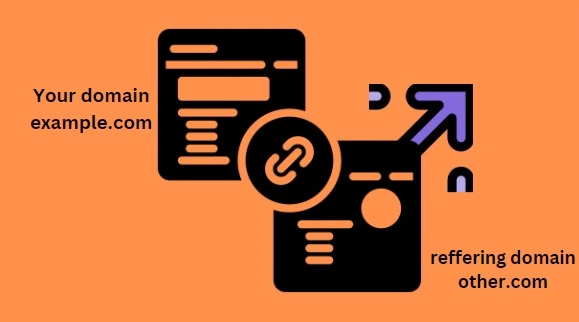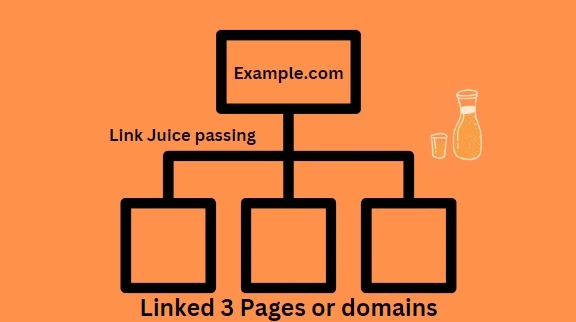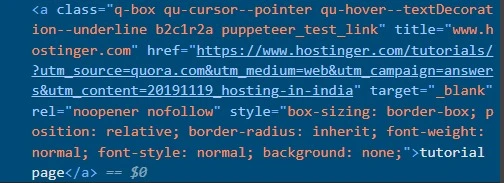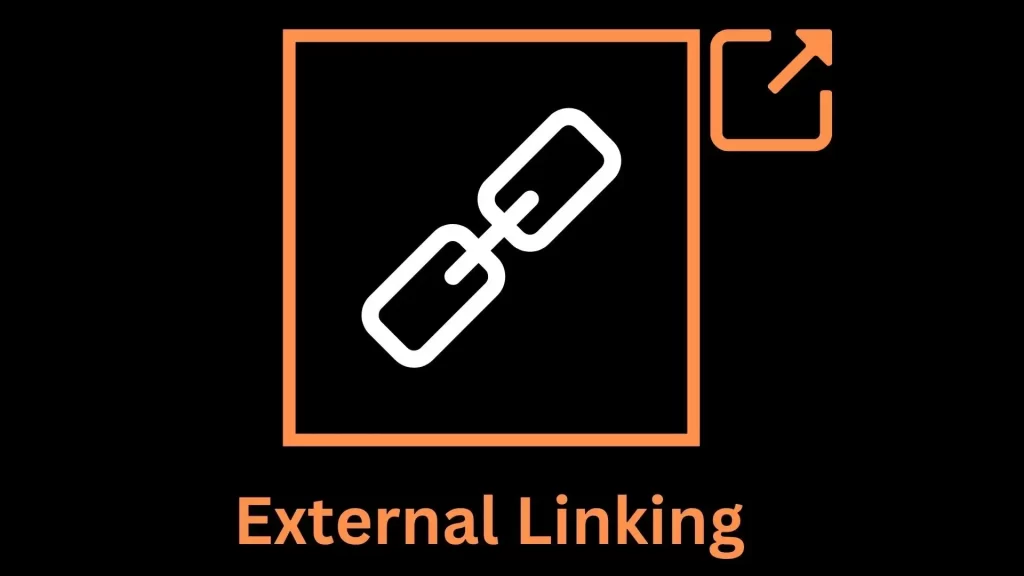Table of Contents
ToggleExternal links are the links on your website that direct the user to another relevant website. We also called them outbound links. Internal links connect different pages of the same website, and inbound links or, backlinks lead users from other websites to you. Meanwhile, outbound links do the opposite- they lead users from your website to others.

External links used to be thought of as a negative move to optimize content – but, the mystery is on the way to resolve- they’ve become a tool to enhance the online visibility of a website. They are just like roads leading to other valuable websites.
When external links are utilized strategically, it improves the website’s authority, and user experience and boosts SERP rankings. In this blog, we’ll learn so much more about external links to help you get an idea of their power!
Why External Linking?
External links are thought of as a destroyer of SEO, but are they? Absolutely not. When we use external linking through a well-planned strategy, they end up improving the website’s authority, user experience, and search engine rankings. But still, of 100,000 blogs, 75% of them had no external links.
Let’s know more about each of the benefits in detail-
Improved Website Authority
External Linking plays an important role in boosting a website’s authority. When you link to other’s websites, the links work in your favor and search engines view you as a valuable and reputable resource that the website can link to get more viewers. How?
By adding external links that are valuable and provide more detailed information, you’re seen as the provider of the information or the source of the information within the industry that works to provide people with value. This way, the scores for authority and domain authority increase.
So, what do you get? Credibility, authority, and better search ranks. When you refer valuable content, you show your expertise and trustworthiness to both search engines as well as users.
Enhanced User Experience
Other than improving website authority, external links also enhance user experience. The content you refer to within your content through links is seen as the commitment to provide detailed information to the readers.
So, whenever users stumble upon some topic that needs more exploration and you provide them with a source through external links, they become fond of you and start trusting you. Altogether, your efforts satisfy their curiosity and impact the depth of your content.
By adding high-quality external links to your website to provide in-depth content, it results in user satisfaction, longer page visits, and increased trustworthiness. You emerge as a reliable source of information.
Boost In SEO
Search Engine algorithms are complex – hidden, mysterious, and difficult- all at the same time. But, within the discovered factors comes external linking which is considered an important factor. Linking to high-quality websites helps search engines know that you focus on providing in-depth knowledge on a topic and are committed to giving value to users.
Through external links, your content is understood better and keyword ranking improves. Suppose you’re posting content on the benefits of digital marketing but, just saying it doesn’t do any good. So, you added links to proofs, case studies, and other sources to give credibility to what you said – this increases the page ranking for digital marketing-related keywords.
Adding more to it, external links indirectly help in building relationships with other websites- another important part of SEO. This connection gives fuel to future collaborations and guest posting opportunities that lead to backlink building and increased visibility.
Meaningful Relationships
Apart from SEO benefits, external links offer an opportunity to build meaningful relationships in the industry. Strategic linking isn’t just about referring or sharing but building a bond. The relationship can turn into valuable assets in later times.
Linking to authoritative and relevant websites shows that you respect work and expertise even if they’re your competitors. This way, there’s a possibility that they thank you for it, or even reciprocate by placing your links on their websites.
With that, you get the reach of many other opportunities. It may include partnerships and collaborations. According to Ahrefs, 43.7% of top pages consist of reciprocal links. This shows that the content that they mention, links back to them.
More importantly, you get to reach a newer audience as audiences of different perspectives and points of view reach your websites in search of content and links. This website gets exposure so, they might share your content as well and help you increase your reach.
NoFollow vs Follow External Links
External links have two categories – follow and nofollow. Basically, follow links are the ones that lead to other websites just by clicking on them and passing the link juice. Meanwhile, a nofollow link doesn’t pass link juice.

NoFollow External Links
Through a nofollow external link, you send a signal to Google to not pass the ranking signals, or consider to rank the linked page. It’s surprising but 89.1% of link builders say that nofollow links impact search rankings.
One can add a nofollow attribute to an external link by <a href=”https://example.com” rel=”nofollow”>Example</a>

Follow External Links
These are the links that you want Google to pass ranking signals to. This is a default option and doesn’t need you to add any attribute.
Best Practices To Keep In Mind While External Linking
We saw how external linking benefits us in improving user experience, enhancing SEO, and increasing website authority and meaningful connections. But, to maximize the benefits, a few practices should be followed to avoid getting into trouble-
- Choose Quality Over Quantity, especially in the case of external links. When you link to a highly authoritative and relevant website, you get more benefits than scattery irrelevant links all over the website. By adding valuable external links, you can build relations with reputable websites and succeed in the future.
- Make sure the links are directly related to the topic of your content. Unrelated links result in diluting content focus and confusion. A naturally placed relevant link improves user experience and proves you as a subject matter expert.
- Focus on the anchor text – the text that’s clickable and contains a link. It’s an important part of SEO. Use relevant and descriptive text to help search engines and users understand the context behind the link. Don’t stuff keywords but link naturally.
- A natural link profile is essential to show how much you’re aware of the other websites and have knowledge in different contexts. Link to .edu, .gov, and .com websites to provide legitimate content.
Don’t use excessive links from a single domain as it might flag you as scammy or even decrease your search ranks.
While all these are some important practices, never forget a nofollow attribute that doesn’t pass link juice. They’re useful in the case of sponsored content or user-generated comments. So, be careful when placing external links.
Some Advanced External Linking Strategies
Who’s not looking to advance the external linking strategies? Of course, everyone’s trying to upscale! So, here are we with some advanced external linking strategies that might not be new but extremely effective.
Allow Guest posting
Guest posting is effective for getting backlinks but, did you think of it as a way to acquire meaningful external links to your website? Invite websites to guest post on your website and add valuable links from the websites to improve their website’s authority as well as yours!
Open External Links In Different Tab
One thing you should make sure is that the external links open in a different tab. While there are many reasons for this, the most important reason is control- the control that the user has with the website, their experience, and the choice of switching any moment they need something else back to your website.
Try To Not Link With Competing Websites
A website always wants to rank first for the keywords they use. So, any website that’s competing with you for a keyword or is already ranking for the keyword is not the one you should go and link to. Instead, link to those that are still growing and provide valuable content.
Conduct Link Audits Regularly
Just like other audits of someone else’s website for broken links to get an opportunity to backlink, audit your website regularly to find out if there’s a broken link on your website. This helps in preventing low ranks due to this and immediate replacement of it with a valuable link.


This Post Has 2 Comments
Hi! This is my 1st comment here so I just wanted to give a quick shout
out and tell you I truly enjoy reading through your blog posts.
Can you suggest any other blogs/websites/forums that go over the
same subjects? Thank you!
Hey Ramen,
I’m happy that you are enjoing content related to seo and email marketing.
Not exactly but you can find same type from backlinko and mailchimp